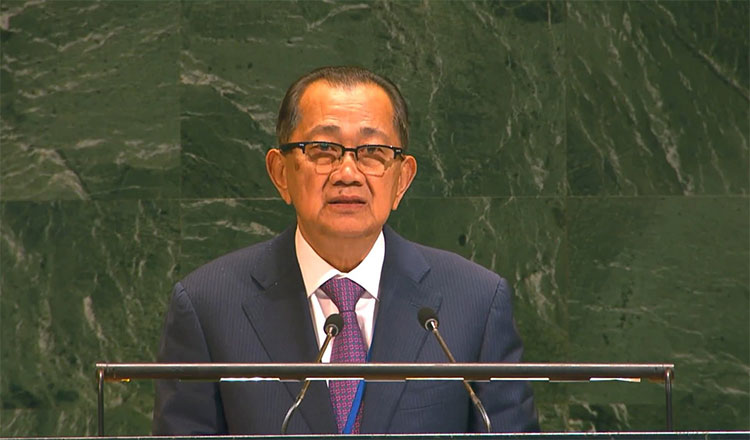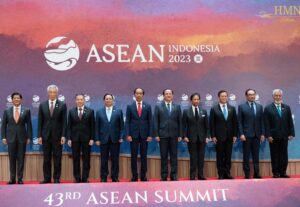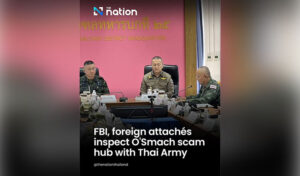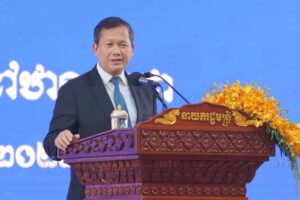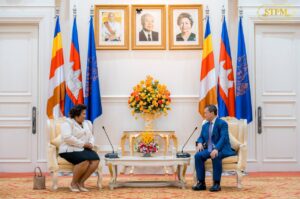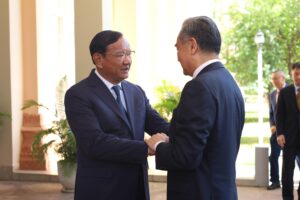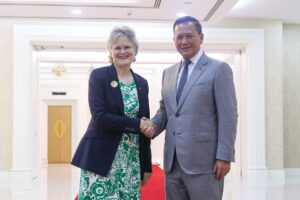Cambodia Questions Thailand’s Commitment to Peace as Ceasefire Effort Falters
New York — Cambodia has told the United Nations Security Council that the current border conflict with Thailand was not an accident but the result of premeditated military planning by Thailand, which it says launched an unprovoked armed assault on Cambodian territory.
In a speech delivered at the Security Council in New York on July 25, Cambodia’s Permanent Representative to the UN, Ambassador Chhea Keo, laid out a detailed chronology of events and actions by Thai military forces, including what Phnom Penh alleges was the implementation of a full-scale war strategy known as the “Chakraphong Phuwanat” plan — previously used by Thailand during the 2008–2011 clashes at the border.
“This move demonstrates a clear and deliberate intention by Thailand to prepare for war,” he siad.
The deployment of F-16 fighter jets, tanks and the extensive use of cluster munitions, and heavy artillery are manifestations of the invasion and aggression.”
“Moreover, Thai armed forces have expanded their military operation preparedness, by declaring the use of state of emergency law in the provinces of Chanthabori and Trat, while Cambodia has made no military deployment or movement in the adjacent areas on the Cambodian side. This is clearly not self-defence, as claimed by Thailand,” Chhea added.
Ambassador Chhea stressed that Cambodia did not initiate any hostilities, had made no military deployments near the border prior to the Thai assault, and had consistently pursued peaceful means of resolving border disputes.
“What is unfolding now is not accidental it is the result of premeditated planning at the highest level of the military in coordination with other government institutions.,” he said, adding that Cambodia had formally invoked Article 35 of the UN Charter to call for an immediate ceasefire and Security Council intervention.
The Cambodian envoy recounted that in the early morning of July 24, Thai armed forces launched coordinated assaults using artillery, tanks, F-16 fighter jets, and cluster munitions on multiple sites in Cambodia’s Preah Vihear and Oddar Meanchey provinces, including UNESCO World Heritage-listed Preah Vihear Temple, religious pagodas, and civilian areas.
According to preliminary reports cited in the statement, the attacks resulted in at least 13 deaths, including five soldiers and eight civilians, with more than 70 others injured. Over 37,000 Cambodians have been evacuated from the affected border provinces.
Cambodia strongly condemned the use of F-16 airstrikes, one of which reportedly killed a monk at a pagoda, and another that damaged the protected areas surrounding the Preah Vihear Temple, in violation of international law including the 1954 Hague Convention.
The speech also accused Thailand of misusing a unilaterally drawn map to justify territorial claims and violating the 2000 Memorandum of Understanding on border demarcation. Ambassador Keo described these actions as amounting to a “de facto annexation” of Cambodian territory.
Highlighting Cambodia’s commitment to peaceful dispute resolution, the ambassador noted that on June 2, Cambodia formally announced its intention to refer four contested sites — including Ta Moan Thom and Ta Krabey temples — to the International Court of Justice (ICJ) under Article 33 of the UN Charter.
He stated that Cambodia has already declared in advance it will accept the ICJ’s rulings and urged Thailand to join in resolving the conflict through legal means. Cambodia also called on the Security Council to refer the matter to the ICJ and to consider sending a UN fact-finding mission to the disputed areas.
Ambassador Keo further revealed that a ceasefire agreement was nearly reached on the evening of July 24 following a call between Malaysian Prime Minister Anwar Ibrahim, who currently chairs ASEAN, and Cambodia’s Prime Minister Hun Manet. Cambodia accepted the ceasefire immediately, but Thailand later backtracked just over an hour before it was to take effect.
“The resolution of the current armed conflict ultimately hinges on Thailand’s genuine willingness to commit to a ceasefire,” the Cambodian representative told the Security Council.
In closing, Cambodia reaffirmed that it seeks peace, not confrontation, and urged the international community to stand with it in defense of sovereignty, international law, and regional stability.
[Khmer Times]

